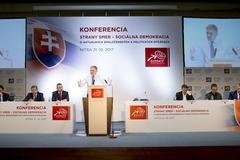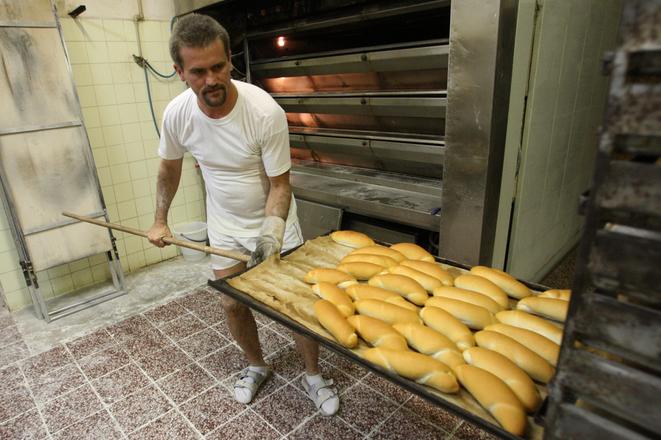Parliament will deal with the surcharges for night, weekend and holiday work as well as financial support for moving and commuting to work at its next session starting on November 28. These measures are part of the ruling coalition’s social package while concrete draft bills were elaborated by Ján Podmanický, Martin Glváč and Ľubomír Petrák, all MPs for the ruling Smer party.
“The Slovak Constitution states that Slovakia is a socially-oriented market economy,” said Prime Minister Robert Fico. “I welcome the fact that members of parliament, after mutual cooperation, have submitted these draft bills.”
In a draft revision to the Labour Code the MPs propose to increase surcharges for night work from the current 20 percent to 50 percent of the minimum wage, i.e. from €0.50 extra per hour to €1.25 per hour as of May 2018.

Fico reiterated that in Slovakia about 250,000 people work night shifts, which, when compared to the size of the population, is an absolute record.
“I deny the cries and lamentations of employers,” said Fico as cited by the TASR newswire, adding that he does not assume that employers could not manage this increase. “Nobody could persuade me that if a person is going into a factory and works there the whole night that he should not get more for night work than he receives now.”
During the second and third reading of the draft bills in parliament some adjustments may be made for some categories of employees.
“We will make some changes because there are some occupations for which the work is done only during the night,” said Fico. “For example bakers. I can imagine an adjustment in this respect.”
Other surcharges will increase too. Surcharges for working on state holidays should increase from 50 percent of the average wage of the employee to 100 percent. There will also be a new surcharge for weekend work. It should amount to 100 percent of the minimum wage.
The revision of the Labour Code will also include a ban on social dumping.
“If somebody employs a foreign worker, for example from the Ukraine, Serbia or Vietnam, they must be employed under the same conditions as a Slovak citizen,” said Fico. “Otherwise it would be a great discrimination against our people and we cannot allow this.”
The revision to employment services should change commuting contributions. Contribution for daily commuting will increase from the current €135 to €200 and the contribution supporting mobility for work should increase the upper limit of €250 to €400 in the case of an individual and €600 in the case of a married couple. The latter contribution pertains to people who spend the working week at a different place and return home for weekends.
There will also be a brand-new contribution for moving for work. Its upper level will be €4,000.
“If a family decides to move at least 70 km for work and change their permanent residence, they will qualify for such a surcharge,” said Labour Minister Ján Richter.



 (source: Sme)
(source: Sme)